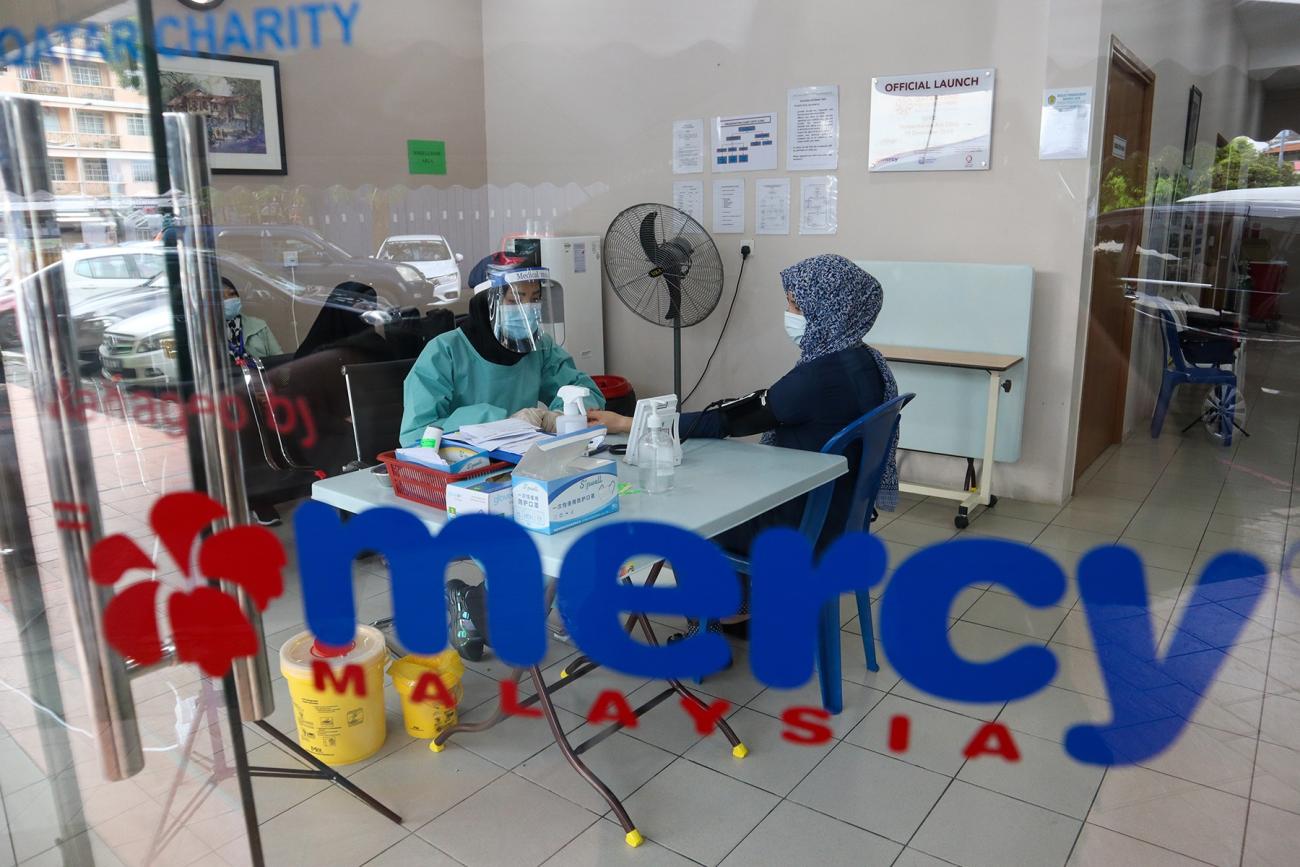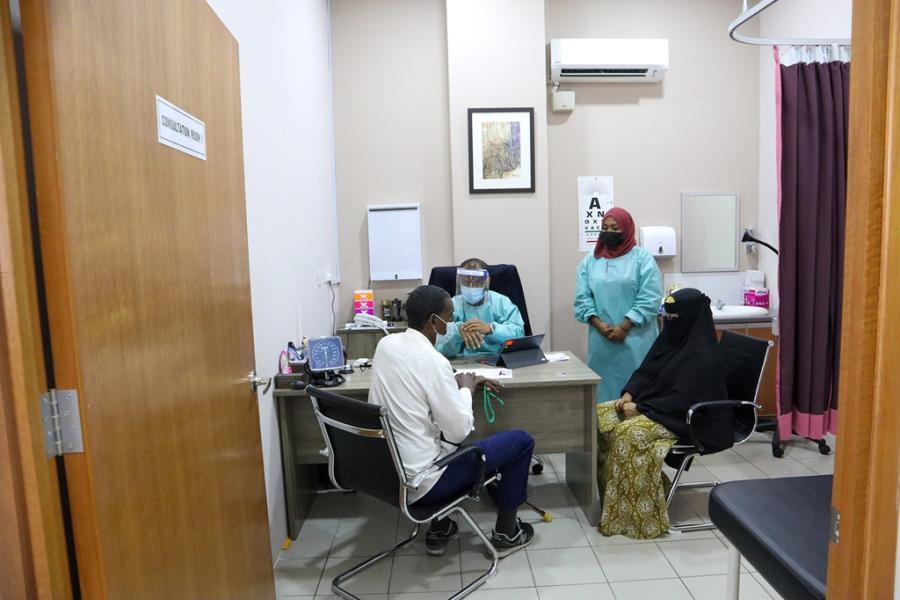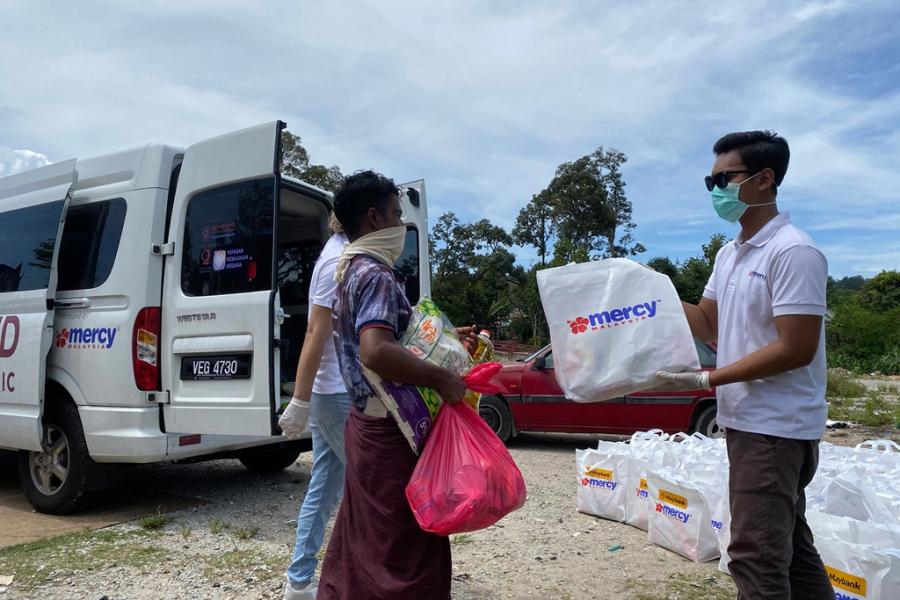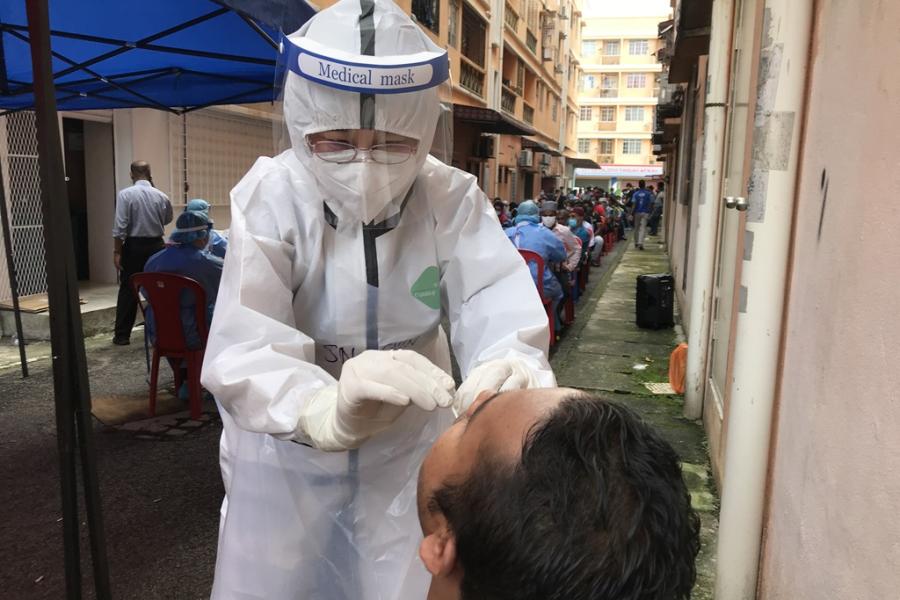Community connections key to reaching refugees in Malaysia during COVID-19

WHO is supporting MERCY Malaysia’s risk communication and community engagement work with more than 130,000 refugees and asylum seekers
Read the original article here
Positive relationships built with refugee communities long before the COVID-19 pandemic are helping civil society organization Malaysian Medical Relief Society (MERCY Malaysia) deliver life-saving information and care during this pandemic, and the World Health Organization (WHO) has joined the United Nations High Commissioner for Refugees (UNHCR) and other partners to support such efforts.
For 17 years, MERCY Malaysia has built trust by serving refugees and asylum seekers with inexpensive or free health care, health education and promotion, mental health care, childhood vaccination and other services in the Klang Valley, where most of Malaysia’s refugees live, and among undocumented migrants in the state of Sabah.
Recognising the vulnerability of refugees during the pandemic and the importance of reliable information from a credible source, WHO is supporting MERCY Malaysia’s risk communication and community engagement work with more than 130,000 refugees and asylum seekers. This is part of WHO’s Civil Society Organization (CSO) Initiative, under which the Organization is supporting a total of 11 agencies in Malaysia, Papua New Guinea and the Philippines.
On peninsular Malaysia, MERCY Malaysia’s work is delivered through two primary healthcare clinics and a weekend mobile clinic that reaches people who would otherwise miss out, for example because they live in remote locations.

Dr Jefri Irwan bin Harris Gunawan, who works as a medical volunteer at MERCY Malaysia’s Klinik QFFD in the Ampang area, explains: “Why is it important? For me to be healthy, I need my neighbourhood, my neighbours to be healthy. I think everybody, regardless of their ethnicity or status, refugee or non-refugee, nationals or non-nationals, should be able to have the same right to health care.”
During the SARS-CoV-2 novel coronavirus pandemic, the clinics have offered COVID-19 testing and, with partners including UNHCR, delivered food parcels, hygiene kits and personal protective equipment.

Communicating effectively is essential in overcoming barriers to access healthcare, says Mohammad Said Alhudzari, General Manager of Programme Operations of MERCY Malaysia.
“We’ve been working with these communities from before so there’s a level of trust there. People see our logo and they accept us.”
Mr Alhudzari says the organization’s expertise and trust helped it understand and ease barriers to reaching people in need, such as language.
“MERCY Malaysia can’t translate health information into every language spoken by the different refugees we work with, and some refugees aren’t literate. Instead, we recruit multi-lingual volunteers who are nominated by their communities. We train them to help explain different health concepts and how to answer questions.”
The Government has recognised MERCY Malaysia’s work with refugees as essential, allowing it to continue during extensive movement control orders aimed to prevent the transmission of the coronavirus.
Dr Lo Ying-Ru Jacqueline, WHO Representative to Malaysia, Brunei Darussalam and Singapore, said it was fitting to honour MERCY Malaysia’s deep community engagement on World Refugee Day, 20 June.
“This pandemic has shown us the importance of agencies like MERCY Malaysia in reaching and protecting protect vulnerable groups such as refugees, asylum seekers, and migrants,” said Dr Lo. “Only by working together in solidarity and continuing to take proven risk reduction and protection measures can we control COVID-19. It’s essential to remember that we’re in this together, and we can only get out of this together.”
Reaching the unreached is a key element in WHO’s For the Future vision of the Western Pacific Region as the safest and healthiest region. The focus on risk communications and community engagement is also part of the Region’s guidance on vulnerable communities such as refugees.
Now the Government of Malaysia is working to ensure COVID-19 vaccines are available to all, including refugees and nationals in order to protect everyone and achieve health equity.
MERCY Malaysia aims to boost individual health in the short term and protect people from the coronavirus. It also has longer-term ambitions, said Mr Alhudzari of MERCY Malaysia, which provides medical relief, sustainable health-related development, risk reduction activities and builds resilient communities for vulnerable communities in crisis and non-crisis situations in Malaysia and internationally.
“We are giving individuals health care now but that’s one-off treatment. To really improve the health of the community, we need to change behaviour and that takes time. That’s why we’re excited about reaching children and young people with education on topics like immunization and hygiene. That’s where we see we can make a major shift in the long term.”




